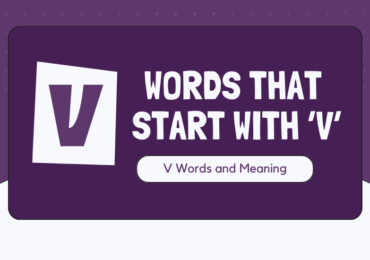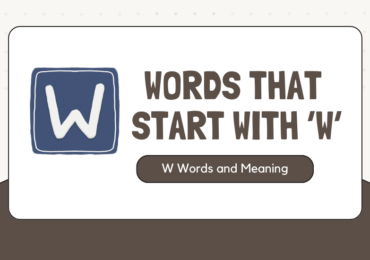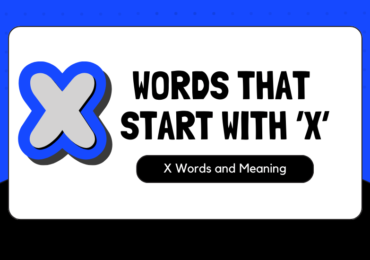The future tense is a verb tense used for a future activity or a future state of being.
భవిష్యత్ కాలంలో జరిగే పనులు లేదా స్థితి గురించి తెలిపేందుకు Future Tense ఉపయోగిస్తాం. ఈ కాలంలో ఉండే వివిధ Aspects అనుచరించి దీన్ని తిరిగి నాలుగు tenses గా విభజించారు.
1. Simple Future Tense
The simple future tense is used when an action is promised/thought to occur in the future.
Example: We shall move to another state. He will come to New Delhi tomorrow.
భవిష్యత్ ఆలోచనలు మరియు వాగ్దానాలు లేదా నిర్ణయాల కోసం మాట్లాడేటప్పుడు simple future tense లో మాట్లాడాలి.
Simple future tense లో ఉపయోగించే Time words
Tomorrow; in (future year, month, week); on (future day); next (month, week, year, name of day); days, months, weeks, years from now; this month, week, afternoon, year; someday.
Simple Present Tense Structures
Positive Sentence
Simple future tense వాక్య నిర్మాణం చాల సరళంగా ఉంటుంది. ఈ మాటలలో ఒక subject + Will / Shall + V1 ( First Form of Verb ) మరియు Object ఉంటాయి. సబ్జెక్టులో first person (I & We) ఉన్నప్పుడు Shall ఉపయోగిస్తారు. మిగతా second మరియు third person ( He, She, they, It ) ఉన్నప్పుడు Will ఉపయోగించాలి. ఈ నియమం అన్ని సంధర్భాలలో వర్తించదు.
| Positive Forms (+) | Subject ( I, We ) + Shall + V1 ( Basic Verb ) + Object |
| Subject ( He, She, You, It, They ) + Will + V1+ Object |
Examples :
|
|
Negitive Sentence
Simple future tense లో నెగిటివ్ వాక్యం చెప్పాల్సి వచ్చినప్పుడు, V1 కు ముందు లేదా Will / Shall తర్వాత "not " చేర్చాల్సి ఉంటుంది.
| Negitive Forms (-) | Subject ( I, We ) + Shall + Not + V1 ( Basic Verb ) + Object |
| Subject ( He, She, You, It, They ) + Will + Not + V1+ Object |
Examples :
|
|
Question Sentence
Simple future tense లోప్రశ్న వాక్యం రూపొందించడం చాలా సులభం. ప్రధాన వాక్య నిర్మాణంలో "will / Shall" సహాయక క్రియ రూపాన్ని, సబ్జెక్టు ముందు ఉంచడం ద్వారా ..ఆ వాక్యం Simple future tense లోని ప్రశ్న వాక్యంగా మారుతుంది. అదేవిధంగా will ముందు క్వశ్చన్ వర్డ్స్ ఉపయోగించి అర్థవంతమైన రూపొందించవచ్చు.
| Question Forms (?) | Shall + Subject ( I, We ) V1 ( Basic Verb ) + Object |
| Will + Subject ( He, She, You, It, They ) + V1+ Object |
Examples :
|
|
Short Answer Sentence
Simple future tense లో ప్రశ్నలు సంధించేటప్పుడు.వాటికీ సంబంధించిన జవాబుల వాక్య నిర్మాణం ఇప్పుడు చూద్దాం. ఈ ప్రశ్నలకు తిరిగి ఇచ్చే జవాబుల్లో simple present negitive sentence వాక్య నిర్మాణం ఉపయోగిస్తూ, సబ్జెక్టు ముందు "Yes / No" మాటలను ఉపయోగించాలి. ప్రశ్నకు పాజిటివ్ సమాధానం చెప్పాల్సి వస్తే సబ్జెక్టు ముందు "Yes" అని, V1 ముందు "will / shall" నీ ఉపయోగించాలి. అదే నెగిటివ్ సమాధానం చెప్పాల్సి వస్తే సబ్జెక్టు ముందు "No" అని, V1 ముందు "Will not / shall not " నీ ఉపయోగించాలి. లేదా Yes, i will/ shall, No willn't / shalln't
| Short Answer Forms (-/+) | YES / NO + Subject ( I, We)+ Shall / Shalln't + V1 + Object |
| YES / NO + Subject ( He, She, It, They, You) + Will / Willn't + V1 + Object |
Examples :
|
|
2. Future Continuous Tense
The Future Continuous tense expresses action at a particular moment in the future. The action will have started before that moment but it will not have finished at that moment.
భవిష్యత్తులో పలానా సమయంలో జరగపోయే పని లేదా స్థితిని తెలిపేందుకు future continuous tense అంటారు. Future continuous tense వాక్య నిర్మాణంలో సబ్జెక్టు + Will be + V1 + ing (present participle (-ing) + ఆబ్జెక్ట్ ఉంటాయి.
Present continuous tense లో ఉపయోగించే Time Words : while, when, this time tomorrow, this time next week, in the afternoon, next month, next week, next year etc.
Future Continuous Tense Structures
Positive Sentence
Future continuous tense వాక్య నిర్మాణంలో సబ్జెక్టు + Will be/Shall be + V1 + ing (present participle (-ing) + ఆబ్జెక్ట్ ఉంటాయి.
| Positive Forms (+) | Subject ( I, We ) + Shall be + V1 + Ing ( present participle ) + Object |
| Subject ( you, we, they ) + Will be + V1 + ing ( Present participle (-ing) + Object |
Examples :
|
|
Negitive Sentence
Future continuous tense లో Negitive వాక్యం నిర్మించేటప్పుడు, Will / Shall తర్వాత "Not" ఉపయోగించాలి. Be నీ యధావిదంగా Not తర్వాత కొనసాగించాలి.
| Negitive Forms (-) | Subject ( I, We ) + Shall + Not + be + V1 + Ing ( present participle ) + Object |
| Subject ( you, He, She, It, they ) + Will + Not + be + V1 + ing ( Present participle (-ing) + Object |
Examples :
|
Question Sentence
Future continuous tense లో ప్రశ్నలు సంధించడం చాల సులువైన పని. Will / Shall సహాయక క్రియను సబ్జెక్టు ముందుకు చేర్చిడం ద్వారా Future continuous tense ప్రశ్న వాక్యం ఏర్పడుతుంది. Be క్రియను యధావిదంగా సబ్జెక్టు మరియు ప్రధాన క్రియకు నడుమ ఉండనీయాలి.
| Question Forms (?) | Shall + Subject ( I, We ) + be + V1 + Ing ( present participle ) + Object |
| Will + Subject ( you, He, She, It, they) + be + V1 + ing ( Present participle (-ing) + Object |
Examples :
|
|
Short Answer Sentence
Future continuous tense లో ప్రశ్నలు సంధించేటప్పుడు.వాటికీ సంబంధించిన జవాబుల వాక్య నిర్మాణం ఇప్పుడు చూద్దాం. ఈ ప్రశ్నలకు తిరిగి ఇచ్చే జవాబుల్లో సబ్జెక్టు ముందు "Yes / No" మాటలను ఉపయోగించాలి. ప్రశ్నకు పాజిటివ్ సమాధానం చెప్పాల్సి వస్తే సబ్జెక్టు ముందు "Yes" అనే మాట చేర్చితే సరిపోతుంది. మిగతా వాక్యంలో ఎటువంటి మార్పు చేయాల్సిన అవసరం లేదు. అదే నెగిటివ్ సమాధానం చెప్పాల్సి వస్తే సబ్జెక్టు ముందు "No" అని చేర్చుతూ, Shall / will తర్వాత "Not" నీ ఉపయోగించాలి. లేదా క్లుప్తంగా Yes, Shall be / Will be లేదా No, Shall not be / Will not be ఉపయోగిస్తే సరిపోతుంది.
| Short Answer Forms (-/+) | YES / NO + Subject ( I, We ) + Shall be / Shall Not be + V1 + Ing + Object |
| YES / NO + Subject ( You, He, She, They ) + Will be / Will not be + V1 + ing + Object |
Examples :
|
|
3. Future Perfect Tense
The future perfect is a verb tense used for actions that will be completed before some other point in the future
భవిష్యత్తులో ఒక నిర్దిష్ట సమయానికి పూర్తిచేసే పనులను తెలపడానికి future perfect tense అంటారు. Future continuous tense వాక్య నిర్మాణంలో సబ్జెక్టు + Will / Shall Have + V3 (Past participle (-ing) + ఆబ్జెక్ట్ ఉంటాయి.
Present continuous tense లో ఉపయోగించే Time Words : while, when, this time tomorrow, this time next week, in the afternoon, next month, next week, next year etc.
Future Perfect Tense Structures
Positive Sentence
Future perfect tense వాక్య నిర్మాణంలో సబ్జెక్టు + Will Have/ Shall have + V3 + ఆబ్జెక్ట్ ఉంటాయి.
| Positive Forms (+) | Subject ( I, We ) + Shall + Have + V3 + Object |
| Subject ( you, He, She , they ) + Will + Have + V3 + Object |
Examples :
|
Negitive Sentence
Future perfect tense లో Negitive వాక్యం నిర్మించేటప్పుడు, Will /Shall తర్వాత "Not" ఉపయోగించాలి. have మాటను యధా స్థితిలో ఉండనీయాలి.
| Negitive Forms (-) | Subject ( I, We ) + Shall + Not + have + V3 + Object |
| Subject ( you, He, She, It, they ) + Will + Not + Have + V3 + Object |
Examples :
|
Question Sentence
Future perfect tense లో ప్రశ్నలు సంధించడం చాల సులువైన పని. Will / Shall సహాయక క్రియను సబ్జెక్టు ముందుకు చేర్చిడం ద్వారా Future perfect tense ప్రశ్న వాక్యం ఏర్పడుతుంది. Have సహాయక క్రియను యధావిదంగా సబ్జెక్టు మరియు ప్రధాన క్రియకు నడుమ ఉండనీయాలి.
| Question Forms (?) | Shall + Subject ( I, We ) + Have + V3 + Object |
| Will + Subject ( You, He, She, It, they) + Have + V3 + Object |
Examples :
|
|
Short Answer Sentence
Future perfect tense లో ప్రశ్నలు సంధించేటప్పుడు. వాటికీ సంబంధించిన జవాబుల వాక్య నిర్మాణం ఇప్పుడు చూద్దాం. ఈ ప్రశ్నలకు తిరిగి ఇచ్చే జవాబుల్లో సబ్జెక్టు ముందు "Yes / No" మాటలను ఉపయోగించాలి. ప్రశ్నకు పాజిటివ్ సమాధానం చెప్పాల్సి వస్తే సబ్జెక్టు ముందు "Yes" అనే మాట చేర్చితే సరిపోతుంది. మిగతా వాక్యంలో ఎటువంటి మార్పు చేయాల్సిన అవసరం లేదు. అదే నెగిటివ్ సమాధానం చెప్పాల్సి వస్తే సబ్జెక్టు ముందు "No" అని చేర్చుతూ, Shall / will తర్వాత "Not" నీ ఉపయోగించాలి. లేదా క్లుప్తంగా Yes, Shall have / Will have లేదా No, Shall not have / Will not have ఉపయోగిస్తే సరిపోతుంది.
| Short Answer Forms (-/+) | YES / NO + Subject ( I, We ) + Shall have / Shall Not have + V3 + Object |
| YES / NO + Subject ( You, He, She, They ) + Will have / Will Not Have + V3 + Object |
Examples :
|
|
4. Future Perfect Continuous Tense
The future perfect continuous, also sometimes called the future perfect progressive, is a verb tense that describes actions that will continue up until a point in the future.
భవిష్యత్తులో ఒక నిర్దిష్ట సమయం వరకు కొనసాగే లేదా కొనసాగుతున్న పనులను తెలియజేయడానికి future perfect continuous tense ఉపయోగిస్తారు. Future continuous tense వాక్య నిర్మాణంలో సబ్జెక్టు + Will have been / Shall have been + V1 + ing + ఆబ్జెక్ట్ ఉంటాయి.
Present continuous tense లో ఉపయోగించే Time Words : while, when, this time tomorrow, this time next week, in the afternoon, next month, next week, next year etc.
Future Perfect continuous Tense Structures
Positive Sentence
Future perfect continuous tense వాక్య నిర్మాణంలో సబ్జెక్టు + Will Have Been / Shall have Been + V1 + Ing + ఆబ్జెక్ట్ ఉంటాయి.
| Positive Forms (+) | Subject ( I, We ) + Shall + Have Been + V1 + Ing + Object |
| Subject ( you, He, She , they ) + Will + Have Been + V1 + Ing + Object |
Examples :
|
Negitive Sentence
Future perfect continuous tense లో Negitive వాక్యం నిర్మించేటప్పుడు, Will /Shall తర్వాత "Not" ఉపయోగించాలి. have been మాటను యధా స్థితిలో కొనసాగించాలి.
| Negitive Forms (-) | Subject ( I, We ) + Shall + Not + Have Been + V1 + Ing + Object |
| Subject ( you, He, She, It, they ) + Will + Not + Have Been + V1 + Ing + Object |
Examples :
|
Question Sentence
Future perfect continuous tense లో ప్రశ్నలు సంధించడం చాల సులువైన పని. Will / Shall సహాయక క్రియను సబ్జెక్టు ముందుకు చేర్చిడం ద్వారా Future perfect continuous tense ప్రశ్న వాక్యం ఏర్పడుతుంది. Have been సహాయక క్రియను యధావిదంగా సబ్జెక్టు మరియు ప్రధాన క్రియకు నడుమ ఉండనీయాలి.
| Question Forms (?) | Shall + Subject ( I, We ) + Have been + V1 + Ing + Object |
| Will + Subject ( You, He, She, It, they) + Have been + V1 + Ing + Object |
Examples :
|
|
Short Answer Sentence
Future perfect continuous tense లో ప్రశ్నలు సంధించేటప్పుడు. వాటికీ సంబంధించిన జవాబుల వాక్య నిర్మాణం ఇప్పుడు చూద్దాం. ఈ ప్రశ్నలకు తిరిగి ఇచ్చే జవాబుల్లో సబ్జెక్టు ముందు "Yes / No" మాటలను ఉపయోగించాలి. ప్రశ్నకు పాజిటివ్ సమాధానం చెప్పాల్సి వస్తే సబ్జెక్టు ముందు "Yes" అనే మాట చేర్చితే సరిపోతుంది. మిగతా వాక్యంలో ఎటువంటి మార్పు చేయాల్సిన అవసరం లేదు. అదే నెగిటివ్ సమాధానం చెప్పాల్సి వస్తే సబ్జెక్టు ముందు "No" అని చేర్చుతూ, Shall / will తర్వాత "Not" నీ ఉపయోగించాలి. లేదా క్లుప్తంగా Yes, Shall have been / Will have been లేదా No, Shall not have been / Will not have been ఉపయోగిస్తే సరిపోతుంది.
| Short Answer Forms (-/+) | YES / NO + Subject ( I, We ) + Shall have Been/ Shall Not have Been + V1 + Ing + Object |
| YES / NO + Subject ( You, He, She, They ) + Will have been / Will Not Have been + V1 + Ing + Object |
Examples :
|
|









